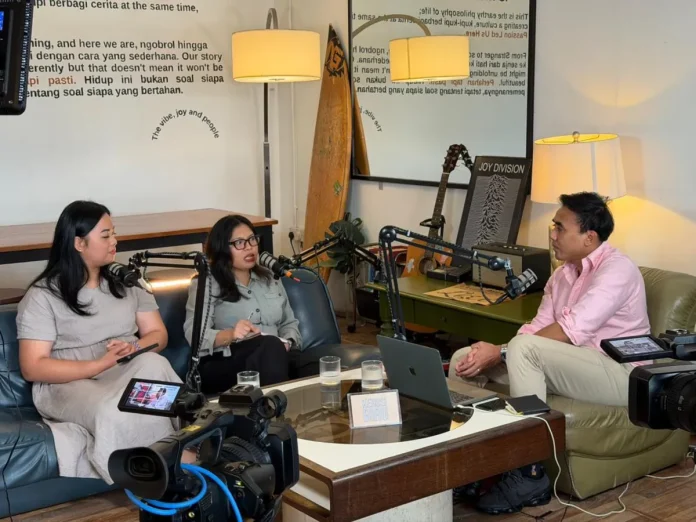Young Sabah leaders commend PM Anwar for listening to state concerns but say much work remains on MA63
PETALING JAYA: Young leaders in Sabah have expressed appreciation for Prime Minister Datuk Seri Anwar Ibrahim’s willingness to engage with the state’s concerns, particularly regarding the Malaysia Agreement 1963 (MA63), though they acknowledge significant work remains ahead.
During a recent Kerusi Biru podcast moderated by PKR deputy secretary-general Aidi Amin Yazid, PKR Youth’s May Eva Sofea Zainal Abidin and Sabah activist Atalia Mae Albert Jaua-Mojuntin praised the current administration’s openness to addressing Sabah’s rights.
May noted that unlike previous administrations, Anwar has demonstrated genuine interest in hearing Sabahan perspectives. “Previous governments overlooked MA63, but PMX shows readiness to engage with Sabah’s leadership,” she observed.
Atalia shared similar sentiments, emphasising that the state requires leadership dedicated exclusively to protecting Sabah’s interests.
May called on Sabah’s next Chief Minister to prioritise MA63 in all governance matters, pointing out that many residents remain unfamiliar with the historic agreement despite its age.
“This agreement has existed for decades, yet numerous Sabahans don’t fully comprehend it,” she explained. “When forming a new government, the Chief Minister must assertively claim our entitlements.”
The youth leader emphasised the critical importance of voter literacy, urging Sabahans to conduct thorough research rather than relying on social media platforms alone.
“Sabah voters need to read extensively—not just TikTok. Consult multiple sources and do proper research. Cast your ballot based on knowledge, not emotions or peer pressure,” she advised.
While recognising that Sabah hasn’t yet achieved its optimal political standing, May expressed encouragement about increasing political consciousness among younger voters. “Today’s youth electorate is more aware and understands their objectives,” she said.
Atalia didn’t shy away from addressing the formidable obstacles young Sabahans face when attempting to transform the state’s political environment, particularly the deeply rooted dynastic political structures.
“Young people face an extended journey. Sabah’s political system is dynastic, presenting substantial challenges for those envisioning a transformed Sabah,” she stated.
When questioned about Sabah’s development since independence, Atalia responded frankly: “The straightforward answer is no, not yet. We haven’t reached that point. We still haven’t established our rhythm, but we have confidence in Anwar’s leadership.”
Both speakers conveyed optimism that a better-informed and engaged electorate—especially among young people—could redirect Sabah’s future course.
“As we’ve mentioned, Anwar demonstrates willingness to hear our concerns, which is crucial for advancement,” they concluded.








